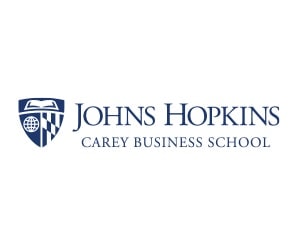When it rains, it pours. I am excited to have another fresh student review of the Johns Hopkins program for all of you. This is from someone I have had the privilege of talking to over the years and it was great to hear from them just recently with the offer to write a review of the program. Hope this helps and as always, stay tuned for more.
- Why an MSF in general? Why a Johns Hopkins MSF in particular?
My undergrad was in government. I started off as a commercial credit analyst by networking and self-studying. I wanted to move closer to capital markets, so I then leveraged that into a credit risk position. I knew I needed a wider finance foundation as quickly as possible, hence the MSF. Most of my program was funded and I’m more of a classroom learner vs. self-study (CFA) so it was an easy choice. I leveraged my credit risk position and MSF into a buy-side research position.
I considered all the MSF programs in the DC area. I really enjoyed JHU’s curriculum. It was more focused on corporate finance and asset management. GW seemed really long for a specialized masters (48 credits?). UMD seemed to lean toward public sector finance. GTOWN was just coming on board and was very expensive. JHU per credit hour is a bargain (~$40k) compared to the other programs.
- Pros and cons of Johns Hopkins MSF?
JHU has a solid faculty. They’ve managed to recruit professors from top business schools and professionals with very solid industry experience. They regularly bring executives from F500 companies in for seminars. I think it speaks to the strength of the JHU. Not many other newish schools could get that attention.
The challenge is the student body is probably 90%+ international kids. I get it; it’s probably funding-related. Obviously this is an issue when it comes to establishing a networking base since most of these kids go home. That said, JHU alums are very responsive, regardless of what school or program they’re affiliated with. The brand is still solid. Nobody has asked me about accreditation, rankings, etc.
- Who would you recommend an MSF to?
People with non-traditional backgrounds and limited work experience. I was an outlier in regards to work experience. In retrospect, I really enjoyed the program and it covered all fundamental concepts of finance needed to be successful. Anything else you can learn on the job or through self-development.
The rebranding and knowledge foundation was pivotal in my transition from credit risk to the buy-side. But you have to be prepared to network and interview prep. A lot of people probably think your school is the end all, be all. If you don’t network, or interview well from a technical or social aspect, you’re not getting a job – period, regardless of school or connections.
- Anything else you want to talk about. OCR, Alumni, class experience, regrets, how it helped, etc.
People shouldn’t worry too much if they don’t have a great math background. The highest level I took was Calc 1, I believe, and I did fine in the program. There were maybe one or two concepts I needed to learn on the fly, but it wasn’t too difficult.
I can’t really comment on OCR since I completed the part-time program. That said, I’ve met alums who work in MM PE, IB, asset management, lending, corporate finance, consulting, etc in the DMV area.
The Baltimore campus is beautiful. DC campus is smaller and older, though in a convenient location.
Here is a link to the Johns Hopkins University Master in Finance Program



